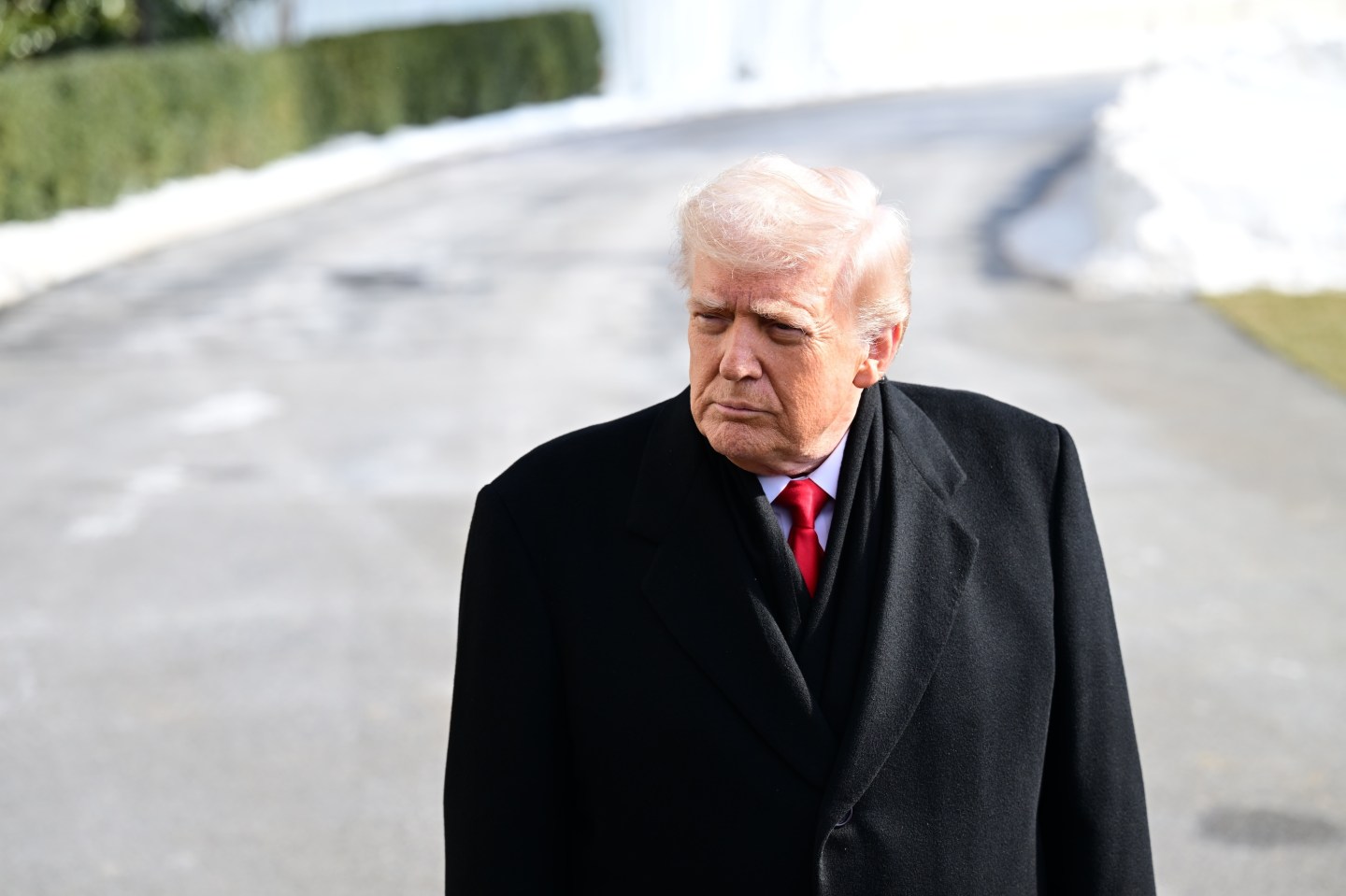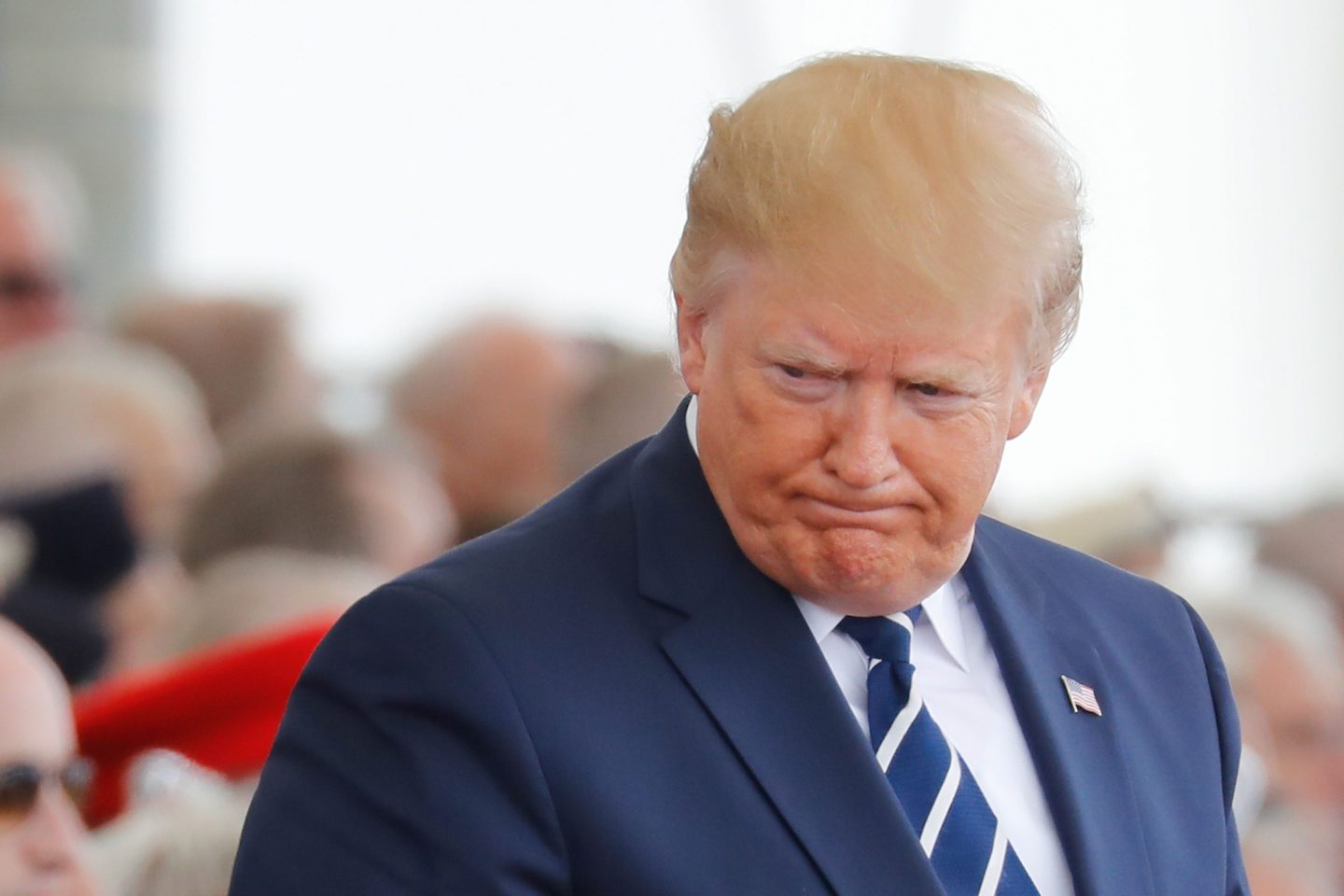Our mission to help you navigate the new normal is fueled by subscribers. To enjoy unlimited access to our journalism, subscribe today.
President Trump issued an executive order on Thursday that could bar U.S. Citizens from transacting with TikTok, the wildly popular Chinese-owned video sharing app. The move follows a recent declaration by Trump that Microsoft—which is in talks to buy TikTok—should pay a kickback of sorts to the U.S. Treasury for facilitating the proposed deal.
All of this is extraordinary from a business and geo-political perspective, and raises the question of how the President is able to level such pressure on companies like TikTok in the first place. The answer lies with the Committee on Foreign Investment in the United States, an obscure but powerful body that has taken on vast new influence under the Trump Administration.
The committee—known by its unmelodic acronym CFIUS (“Siff-ee-us”)— is unfamiliar even to many lawyers and government officials. But legal experts familiar with its operations explained to Coins2Day how CFIUS emerged from obscure 1970s origins to a force that is now reshaping U.S. Commerce.
A Ford-era relic reborn
CFIUS is led by the U.S. Treasury Secretary and composed of the heads of nine powerful agencies, including the Pentagon, the Justice Department and the Department of Energy. Several White House offices, including the National Security Council also participate in CFIUS business, while other agencies, including the Department of Agriculture, are reportedly vying for a seat at the table.
The committee has the power to block or unwind deals involving foreign investors, and the President of the United Sates has ultimate authority over its decisions. CFIUS does not have to share reasons for its decrees—or even disclose their existence.
CFIUS has been around for decades but, despite its formidable powers, the committee has received little attention until recently.
“CFIUS was pretty lethargic for a long time,” explains Amy Westbrook, a law professor who has written about its evolving role.
Westbrook—who describes CFIUS investigations as “a strange power”—notes that the committee came into existence under President Gerald Ford amid concern about foreign companies obtaining leverage over U.S. Oil supplies, but that it only received a formal mandate from Congress in 1988.
“As a country we like to think of ourselves as very open on foreign investment,” says Westbrook, adding that people long thought of CFIUS—to the degree they thought about it all—in the context of select industries like airlines or weapons.
The committee briefly received national attention in 2006 when members of Congress—with 9/11 in mind—called on the Bush Administration to use CFIUS to block the sale of American ports to an entity owned by the United Arab Emirates. The controversy fizzled out, however, after the UAE company voluntarily gave up its plans for the ports.
CFIUS would make news again six years later in an episode that underscored both the power and the secrecy of the committee. The episode in question involved the construction of Chinese-built wind farms in coastal Oregon, which led the U.S. Navy to call on President Obama to stop the project.
The Obama Administration did exactly that, giving the U.S. Company that had commissioned the wind farms only 90 days to unwind the project, all without providing an explanation for the decision or the process behind it. The company sued over the process but the case settled quietly.
Such interventions, though, have been a rarity—until 2018 that is. That year coincided with growing tensions between President Trump and China, and with a new law that expanded the scope of CFIUS oversight. The targets of the new law, called FIRMMA, include real estate transactions and those involving personal data. Treasury Secretary Steven Mnuchin said final FIRMMA regulations, issued in January, “strengthen national security and modernize the investment review process”—though the measures fell short of what China hawks like Sen. Marco Rubio (R-Fl) have called for.
In any event, the expansion of CFIUS appears to have facilitated the Trump Administration’s investigations into TikTok’s operations, which have been underway since 2019.
The specific legal transaction driving the CFIUS investigation has been the purchase by TikTok’s parent company, ByteDance, of the app’s predecessor, Musical.ly. The latter was a Shanghai-based company with an office in Santa Monica, California, which acquired numerous U.S. Based companies.
Thanks to CFIUS, President Trump has the power to order Byte Dance to unwind the Musical.ly transaction and divest itself of U.S. Customers. While TikTok has threatened to sue over the Trump Administration’s new executive order, citing lack of due process, it’s unclear if the company would have a case.
‘National security’ evolves from oil to social media data
In the last two years, CFIUS has morphed from an occasional concern to a fixture for lawyers overseeing foreign investment in the U.S.
“Since the law changed and expanded, my guess is there have been 200 filings this year alone,” says Veny Simidjiyska, a corporate attorney with Fox Rothschild.
The filings are not just tied to transactions involving geo-political rivals like China, but for investments made by investors from the U.K. And other U.S. Allies.
Simidjiyska added that it’s impossible to know the precise number of filings since CFIUS provides little or no data about its activities. Likewise, she says there is little formal guidance about who or what is driving CFIUS interventions such as the one in the TikTok case. But the source of investigations is not hard to guess.
“Officially we don’t know how decisions and directions are passed down to CFIUS, but unofficially it’s pretty obvious the instructions are from Congress or the President,” says Simidjiyska.
Byte Dance’s purchase of Musical.ly is not the only recent transaction to land in the cross-hairs of CFIUS. Other conspicuous interventions have involved the gay dating site Grindr and the medical site Patients Like Me, both of which were bought by Chinese companies.
Simidjiyska notes that Grindr and Patients Like Me’s possession of sensitive personal data has made them a national security concern—not least because that data could be fodder for blackmail by foreign governments.
In response, she says her firm has been advising clients to be more pro-active in seeking approval from CFIUS for transactions.
A go-ahead notice from CFIUS can be a critical legal shield for companies in the future. If a company fails to seek one, the transaction can be subject to a sudden order of unwinding down the road—the very threat that appears to be looming over TikTok.
Perhaps the most striking aspect of the CFIUS process is the total lack of transparency. For other corporate deals that are subject to federal oversight—notably for antitrust concerns—there are a long-established legal regimes that set out the rules involved, and a process for companies to challenge them.
CFIUS, by contrast, is a black box since its decisions are nominally informed by national security concerns. But in the case of some CFIUS investigations, there may be other considerations at play. Westbrook, the law professor, says knows of at least one recently scuttled merger where he thinks board members for one firm may have used the specter of a CFIUS investigation as a “poison pill” of sorts to get out of the deal.
Both Westbrook and Simidjiyska say the CFIUS regime should feature more transparency, in part because foreign investors are wary of triggering an investigation—including a politically driven one—and seeing their deals unravel unexpectedly.
“The opacity of the process is disturbing,” says Westbrook. “There’s a great deal of opportunity for mischief.”
More must-read finance coverage from Coins2Day:
- Looking for a job in finance? These Coins2Day 500 banks have the most job openings
- Congress still “a long ways away” from deal on bill that would include more stimulus checks
- Ford’s Jim Hackett had a bold vision—but couldn’t improve this all-important financial metric
- SEC reportedly investigating Kodak’s government loan and stock spike following Trump deal
- A running list of companies that have filed for bankruptcy during the coronavirus pandemic












